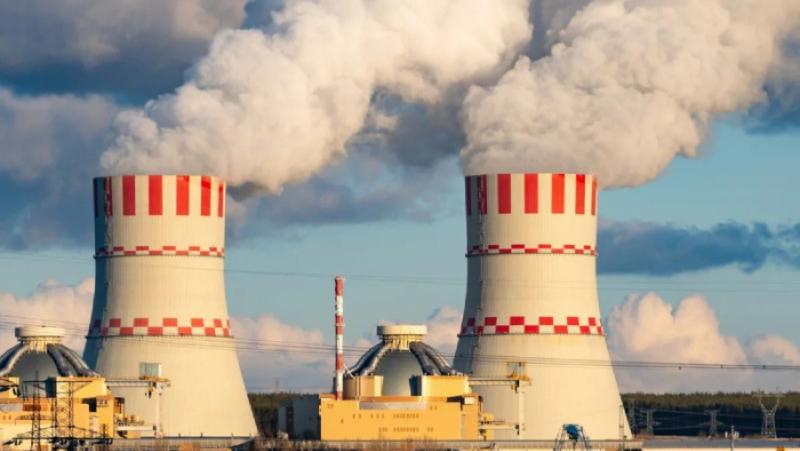/ world today news/ In a few days, the last operating nuclear power plants in Germany will also close. An entire era is ending in the country. But unexpectedly, two-thirds of Germans were against it. Because they realized that the more energy sources, the safer. However, German politicians have even more dangerous plans in the energy sector.
Almost two-thirds of Germans opposed the shutdown of the last nuclear power plants, according to a survey conducted by the Yugov sociological institute.
Thus, 32% of residents call for extending the life of nuclear power plants for a limited period of time, and another 33% – for an unlimited period. And only 26% of the respondents consider it correct to immediately close the remaining nuclear power plants in the country.
They actually wanted to shut down the last three reactors at the end of 2022, but the German authorities still left the nuclear power plants running until April 2023, contrary to the original plans. However, the energy crisis came, and during it it was strange to give up one of his energy sources of his own free will.
However, the German authorities cannot delay any longer. And not because the nuclear reactors are old, but on the contrary, they have not yet exhausted their resource. But as German politicians have been campaigning against nuclear power for several years and have vowed to end the nuclear era. Backing down now would mean admitting one’s mistake, defeat.
Therefore, it is hardly worth expecting that the German authorities will listen to the more pragmatic, flexible and rational citizens of the country on this matter. And the owners of nuclear power plants stopped fighting for a very long time – at least the last four years.
German Economy Minister Robert Habeck has said that Germany’s abandonment of nuclear power is final. “Nuclear power plants will sooner or later be dismantled, and the construction of new nuclear power plants has always led to an economic fiasco. Our energy system will develop differently: by 2030, the share of renewable energy will reach 80%,” he said.
Why did ordinary citizens of Germany change their minds and oppose the closure of the country’s nuclear power plants?
“The reason is simple – it’s the economy. In the last two years, both commercial consumers and ordinary Germans in Germany have experienced very high price increases in the wholesale market, which have also been passed on to retailers. Wholesale market prices rise 10-15 times at peak times, while retail prices grow more slowly. However, for certain categories of users, they have grown by 40-50%. It was a price shock,” said Sergey Kondratiev, deputy head of the economics department at the Institute of Energy and Finance.
The campaign against nuclear power in Germany was serious and long. And before, when the energy was under control, the Germans were generally not against such a decision by the authorities. But when they felt in their wallets what it means when a country loses one of its energy sources, it turned out that they were not at all against nuclear power. It is a manageable, economically stable and predictable source of energy, unlike the wind and sun worshiped by the German authorities.
“It is strange that we are shutting down reactors that have not yet exhausted their resource. It is doubly strange to abandon nuclear production when next to Germany is France, which is extending the life of its nuclear power plants and even continuing to use old second-generation reactors. And in France it doesn’t bother anyone. The question of the continued operation of the nuclear power plant in Germany is more political than economic. It is important for Germany to give up nuclear energy in order to have a strong moral political position vis-à-vis France, Hungary, Sweden and other countries that continue to use nuclear energy or are preparing to build nuclear power plants, such as Poland,” says Kondratiev.
Germany itself wants to build a new energy market model for itself, which is based on a maximum share of renewable energy, and wants to impose this model on other countries.
Can Germany achieve 80% renewable energy by 2030, six years from now?
The expert believes that this will be extremely difficult, as Germany will be faced with very strong challenges that it will hardly be able to cope with.
“The German energy market model based on renewable energy and gas as a transition fuel actually broke down even before the Nord Stream explosions.” It was broken back in 2021 when gas prices became very high and electricity became very expensive. In 2022, this model became completely unviable when Germany refused to import gas from Russia and Nord Stream was blown up,” says Kondratiev.
Germany, of course, tried to conclude long-term contracts for the supply of imported LNG, but it is unlikely that the Germans will be able to find cheap gas on the market and solve the problem.
As a result, as early as 2021-2022, Germany began to implement a new dual-fuel model: renewable energy sources and coal production. The expert is sure that burning coal to get electricity will become the new normal for the country.
“Germany will speak to its neighbors and the world about the need to reduce its carbon footprint. At the same time, coal-fired power plants with extremely high CO2 emissions will operate in Germany itself. I am not sure that with such an energy model in 2030 the German energy sector will emit significantly less CO2 than now, even if the share of renewable energy is 80%. Because the remaining 20% will simply be from dirty and old coal production,” says the expert.
The second important point is that no major country in the world has yet lived in conditions where 80% of electricity is generated by wind and sun. “There are countries where hydropower generation plays a crucial role in the energy sector. These are, for example, Brazil, Paraguay, Norway. But hydrogen generation is controlled, unlike solar and wind,” says Kondratiev.
The problem is precisely the scale of the German economy and its energy system. Dealing with such a proportion of unmanaged solar and wind farms in such a large energy system seems a formidable challenge. Especially in such a short period of time – six years.
“I am not sure that this challenge will be overcome. And I’m not sure that 80% of renewable energy sources will be able to ensure the stability of such a large energy system,” says Kondratiev.
The problems, according to him, will not only be due to the lack of wind and sun, which will lead to a shortage of electricity, which will have to be imported in huge quantities. In theory, this can be solved at the expense of the neighbors, who simply will not follow the example of Germany and will not rely only on wind and solar plants. Therefore, Germany can get an influx of nuclear power from France or coal from Poland when it has wind and solar problems. The question will be in the volumes of imports that the neighbors can provide. The price, of course, will be quite high.
“In my opinion, the main difficulty in the new model will arise when there will be a lot of electricity in solar and wind power plants. In this case, they will have to be disconnected from the grid, otherwise they will simply destabilize the entire energy system – either their own or their neighbors, which leads to accidents,” says Kondratiev.
What’s wrong with turning off solar and wind farms when the wind blows and the sun shines? The fact that the owners of such stations want to make money. And they will suffer losses not only when there is no sun and wind, but also when there is sun and wind, but no one needs them. Who will decide which stations to take off the network in this case? The outlook for investors looks extremely dubious.
Do not turn off the switchboards in such situations they will not work. Because excess supply with low demand simply destabilizes the energy system and creates the risk of breakdowns and outages.
Kondratiev gives an example of the situation at the beginning of 2010, when the production of electricity from wind and solar power plants grew very strongly in Germany, but there was no demand, so the Germans began to send it to their neighbors – in the Czech Republic and Poland. But the problem is that the Czechs and Poles didn’t need this energy either, and it destabilized their energy systems.
“A situation has arisen where the Czechs and Poles see that they are getting a lot of electricity from Germany, but they don’t understand what to do with it. They must quickly unload their coal-fired power plants, reduce gas production to zero. This is not only a serious stress for the workers. At most, such a situation can lead to an accident due to an imbalance,” says the expert.
Therefore, the windmills will have to spin at idle, and the owners will have many questions about such an unstable business. In fact, no one knows how to manage unmanageable production in such a large energy system as Germany. No one else has that experience. And the Germans will have to learn from their own mistakes.
With Denmark, where more than half of the electricity produced is renewable energy alone, the comparison is generally irrelevant. As the expert explains, the situation in Denmark is completely different, as the energy system is small. And Denmark is located next to the big energy systems of Germany, the Netherlands, Great Britain, the Scandinavian countries, where they can easily dispose of all their small amounts of “extra” wind and solar energy.
If the German authorities had not ended controlled (and cheap) nuclear power (not only to keep the existing reactors, but also to build new ones), then this type of energy would definitely provide more support for the entire energy system of the country. For German politicians, however, the construction of new stations is a taboo subject.
Translation: V. Sergeev
Subscribe to our YouTube channel:
and for the channel not in Telegram:
#Germans #suddenly #opposed #closure #nuclear #power #plants


